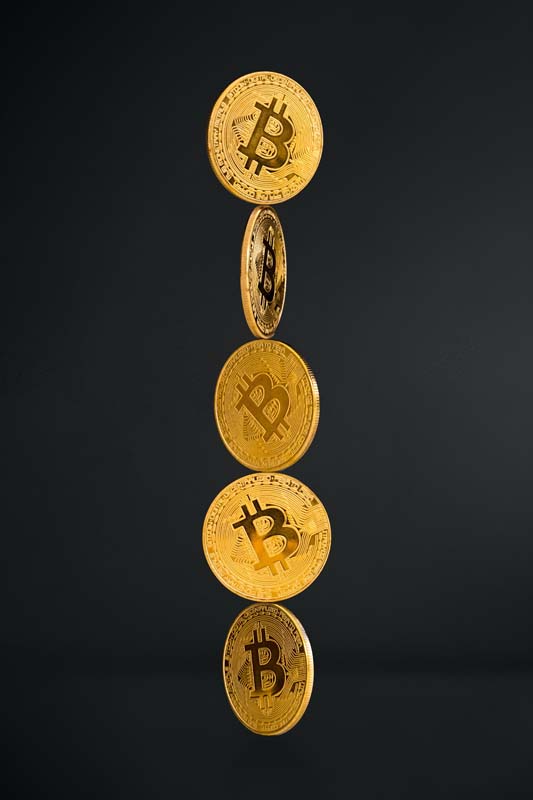Egyptians fall victim to cryptocurrency mining app scam, losing savings, investments
(MENAFN) Last week, Egyptians who invested in a cryptocurrency mining app were dealt a heavy blow when they discovered that their promised profits were nothing more than fiction. The app, called Hoggpool, was launched in August and advertised as a platform investing in cutting-edge industries such as blockchain, space tech, and life sciences technology. Hoggpool claimed to be a leading energy provider worldwide, offering cryptocurrency mining at all levels. Potential investors were offered various investment plans starting from as little as USD10, with a fixed daily profit of USD1 over a specific period. The investment options ranged up to an USD800 crypto-mining "machine" with a USD55 per-day payout.
Hoggpool promised investors the ability to withdraw their money daily, minus a 15 percent tax, or wait until the end of the month and withdraw all their returns tax-free. For Tarek Abd El-Barr, a medical supplies worker, the opportunity seemed too good to pass up. The people behind Hoggpool held receptions, parties, and meetings in fancy hotels and other venues, creating the impression that it was all aboveboard.
While pyramid and Ponzi schemes are not new in Egypt, cryptocurrency scams are. Ads on social media platforms lured some users in, but for many, it was acquaintances who had already invested in the app that convinced them to join. Abd El-Barr's brother-in-law, who had already invested in the app and was seeing consistent profits, convinced him to join. Starting with an investment of just 6,000 Egyptian pounds (about USD200) in February, Abd El-Barr got his money back with profits and tripled his investment.
The platform's biggest and final offer was a new "deposit funds" feature, promising users the ability to earn as much as five times the value of their existing investment in just five days. Abd El-Barr was skeptical, but as it had worked thus far, he went ahead and took the risk, throwing all of his savings into the app. However, on February 27, when he attempted to withdraw his money, it did not work. Two days later, on March 1, the app stopped working altogether, and the website vanished.
Dozens of videos flooded the internet of people sharing their stories and crying out for help. Lawyers and victims told CBS News that the people behind Hoggpool lured in investors with receptions, parties, and meetings in fancy hotels and other venues. Pyramid and Ponzi schemes are nothing new in Egypt, but cryptocurrency scams are. Some investors took loans from banks to invest in Hoggpool, while others used their car installment money or life savings. Many have missed payments and are now being chased by banks.
Hoggpool promised investors the ability to withdraw their money daily, minus a 15 percent tax, or wait until the end of the month and withdraw all their returns tax-free. For Tarek Abd El-Barr, a medical supplies worker, the opportunity seemed too good to pass up. The people behind Hoggpool held receptions, parties, and meetings in fancy hotels and other venues, creating the impression that it was all aboveboard.
While pyramid and Ponzi schemes are not new in Egypt, cryptocurrency scams are. Ads on social media platforms lured some users in, but for many, it was acquaintances who had already invested in the app that convinced them to join. Abd El-Barr's brother-in-law, who had already invested in the app and was seeing consistent profits, convinced him to join. Starting with an investment of just 6,000 Egyptian pounds (about USD200) in February, Abd El-Barr got his money back with profits and tripled his investment.
The platform's biggest and final offer was a new "deposit funds" feature, promising users the ability to earn as much as five times the value of their existing investment in just five days. Abd El-Barr was skeptical, but as it had worked thus far, he went ahead and took the risk, throwing all of his savings into the app. However, on February 27, when he attempted to withdraw his money, it did not work. Two days later, on March 1, the app stopped working altogether, and the website vanished.
Dozens of videos flooded the internet of people sharing their stories and crying out for help. Lawyers and victims told CBS News that the people behind Hoggpool lured in investors with receptions, parties, and meetings in fancy hotels and other venues. Pyramid and Ponzi schemes are nothing new in Egypt, but cryptocurrency scams are. Some investors took loans from banks to invest in Hoggpool, while others used their car installment money or life savings. Many have missed payments and are now being chased by banks.

Legal Disclaimer:
MENAFN provides the
information “as is” without warranty of any kind. We do not accept
any responsibility or liability for the accuracy, content, images,
videos, licenses, completeness, legality, or reliability of the information
contained in this article. If you have any complaints or copyright
issues related to this article, kindly contact the provider above.
Most popular stories
Market Research

- Permissionless Data Hub Baselight Taps Walrus To Activate Data Value Onchain
- Japan Shrimp Market Predicted To Hit USD 7.8 Billion By 2033 CAGR: 2.62%
- FBS Analysis Shows Ethereum Positioning As Wall Street's Base Layer
- BTCC Announces Participation In Token2049 Singapore 2025, Showcasing NBA Collaboration With Jaren Jackson Jr.
- Chipper Cash Powers 50% Of Bitcoin Transactions With Bitcoin Lightning Network Via Voltage
- Japan Green Hydrogen Market Size To Reach USD 734 Million By 2033 CAGR Of 27.00%






















Comments
No comment